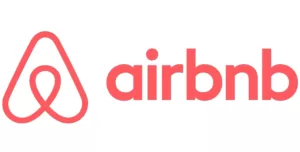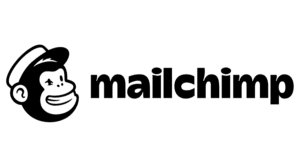In today’s fast-paced and constantly evolving world of technology, startups face significant challenges when it comes to establishing a strong brand presence. With so many competitors vying for attention, startups must differentiate themselves and build a loyal customer base to succeed. However, creating a strong brand presence is easier said than done, especially for new businesses with limited resources.
Startups face common branding struggles, including differentiating from competitors, building brand awareness, maintaining a consistent brand message, balancing growth and profitability, building a loyal customer base, creating a strong visual identity, and staying true to their brand values. Overcoming these challenges is essential for establishing a brand that stands out in the crowded market, and recognized brands can serve as examples for startups looking to establish their own brand presence.
In this article, we will explore seven common branding struggles that technology startups face and how recognized brands have successfully navigated them. We will delve into specific examples of brands such as Mailchimp, Patagonia, and Airbnb, and examine how their branding strategies have helped them establish a strong brand presence and loyal customer base. By the end of this article, you will have a better understanding of the challenges that technology startups face in establishing a brand presence and how they can overcome these challenges to succeed in a competitive market.
Differentiating from competitors
One of the most significant challenges faced by technology startups is differentiating themselves from their competitors. With so many startups entering the market, it can be challenging to stand out and establish a unique selling proposition. One example of a startup that successfully differentiated itself from competitors is Slack.

Slack is a communication platform that faced stiff competition from well-established players like Microsoft and Google. To differentiate themselves, Slack focused on creating a unique user experience that emphasized simplicity and ease of use. They also leveraged the power of word-of-mouth marketing, encouraging early adopters to share their positive experiences with others. Slack’s strategy paid off, and the company is now valued at over $23 billion.
Building brand awareness
Building brand awareness is crucial for startups, but it can be challenging with limited budgets and resources. However, some startups have found creative ways to build their brand presence. One example of a startup that successfully built brand awareness is Dropbox.

Dropbox is a cloud storage company that faced significant challenges in building brand awareness when they launched. To overcome this, they created a referral program that rewarded users for inviting others to try the service. This approach helped them rapidly grow their user base and establish a strong brand presence. Dropbox now has over 600 million registered users worldwide.
Maintaining a consistent brand message
As startups grow and evolve, it can be difficult to maintain a consistent brand message across all channels and touchpoints. However, some startups have successfully maintained a consistent brand message by developing core values that guide their business decisions and marketing efforts. One example of a startup that successfully maintained a consistent brand message is Airbnb.

Airbnb is an online platform that connects travelers with hosts who have spare rooms or apartments. To maintain a consistent brand message, they developed a set of core values that guide their business decisions and marketing efforts. These values include community, belonging, and diversity, and they are reflected in all of their communications and interactions with customers. Airbnb’s focus on community and belonging has helped them establish a strong brand presence and loyal customer base.
Building a loyal customer base
Establishing a loyal customer base is critical to startup success, but it can be challenging with so many options available to customers. However, some startups have successfully built a loyal customer base by providing personalized experiences and staying engaged with their customers. One example of a startup that successfully built a loyal customer base is Spotify.

Spotify is a music streaming platform that provides personalized music recommendations and interactive playlists to keep customers engaged. This personalized approach has helped them establish a loyal customer base, with over 356 million active users worldwide. Spotify’s focus on personalized experiences and engagement has helped them stay ahead of the competition and establish a strong brand presence.
Balancing growth and profitability
Focusing on growth is crucial for startups, but profitability is equally important in building a sustainable business in the long run. However, some startups have found ways to balance growth and profitability by focusing on generating leads and converting them into customers. One example of a startup that successfully balanced growth and profitability is Hubspot.

Hubspot is a marketing software company that uses an inbound marketing strategy to generate leads and convert them into customers. Their focus on inbound marketing has helped them grow their customer base while maintaining profitability. Hubspot’s approach to balancing growth and profitability has helped them establish a strong brand presence and loyal customer base.
Creating a strong visual identity
Creating a strong visual identity is essential for establishing brand recognition and differentiation. However, for startups, it can be challenging to create a strong visual identity with limited resources. One example of a startup that successfully created a strong visual identity is Mailchimp.

Mailchimp is an email marketing platform that has become known for its playful and memorable branding. Their visual identity includes a distinctive monkey mascot and bright, bold colors. Mailchimp’s playful branding has helped them stand out in a crowded market and establish a strong brand presence.
Staying true to your brand values
As startups grow and face new challenges, it can be tempting to stray from their core values to appease investors or customers. However, staying true to your brand values is critical to maintaining a strong brand presence and loyal customer base. One example of a startup that stayed true to their brand values is Patagonia.

Patagonia is an outdoor clothing and gear company that has been committed to sustainability and environmental activism since its founding. Despite pressure to focus on profits over principles, Patagonia has stayed true to their values, even going so far as to prioritize repairing and reselling used clothing over producing new items. Patagonia’s commitment to sustainability and social responsibility has helped them establish a loyal customer base and a strong brand presence.
In conclusion, branding is critical to the success of any business, but for technology startups, it is especially challenging. However, by learning from the successes of recognized brands, startups can overcome common branding struggles and establish themselves as market leaders. By differentiating from competitors, building brand awareness, maintaining a consistent brand message, building a loyal customer base, balancing growth and profitability, creating a strong visual identity, and staying true to their brand values, startups can establish a strong brand presence and set themselves up for long-term success.

I help early-stage startup founders build brands that actually get traction. No fluff, just clear strategy and design that speaks to the right people.Want to find out if your brand is ready? 👉Take the quiz or Join the waitlist